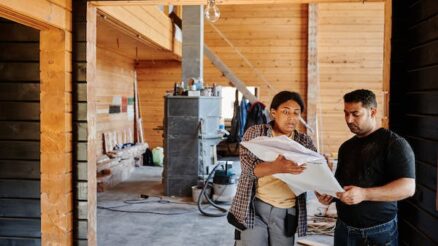Just as humans need dental care, our furry companions require the same attention to maintain their oral health. Choosing the perfect dental surgeon for your pet’s needs is essential, but it can feel like a challenging task. Fear not; this guide is here to assist you in finding the most trusted veterinary dental surgeon in your area. Let’s dive into the world of canine dentistry and ensure your pet receives the best possible care.
What is a Veterinary Dental Surgeon?
A veterinary dental surgeon is a specialized professional dedicated to maintaining and improving the oral health of animals, including your beloved dog. These experts undergo extensive training, and certification by the American Veterinary Dental College (AVDC), and perform a variety of dental procedures on our furry friends.
Veterinary Dentistry Background & Qualifications
Veterinary dentistry involves the assessment, prevention, and treatment of dental diseases in animals. To become a veterinary dental surgeon, an individual must complete a four-year doctorate in veterinary medicine and surgery, followed by a formal training program in veterinary dentistry. Upon completing the program, they must pass the AVDC examination to become a certified veterinary dental specialist.
Common Dental Procedures Performed by Veterinary Dental Surgeons
Some standard procedures performed by these dental experts include tooth extractions, root canal therapy, dental scaling and polishing, and oral surgery to remove tumors or address malocclusions (crooked teeth or jaws).
Identifying Potential Veterinary Dental Surgeons
Using the American Veterinary Dental College Directory
The AVDC directory is a valuable resource for pet owners, as it lists all certified veterinary dentists in your area. By consulting this directory, you increase your chances of finding a qualified professional capable of providing your pet with exceptional dental care.
Referrals from Friends, Family, and Primary Veterinarian
Word-of-mouth recommendations can be a reliable source when searching for a trustworthy veterinary dental surgeon. Friends and family with pets may have valuable insights, and your primary veterinarian might even provide dental services or recommend a dental specialist in the area.
Researching Local Veterinary Clinics
Take the time to search for local veterinary clinics that offer dental services. Websites, social media pages, and online forums could provide vital information regarding the quality of dental care provided at these clinics. To find the best dental care for your pet, click here to explore local veterinary clinics in your area and gather valuable insights from other pet owners who have experienced their services firsthand.
Assessing Credentials and Experience
Verifying State Licensing and AVDC Certification
Ensure that the veterinary dental surgeon you choose is licensed to practice in your state and has met the AVDC training requirements. These accreditations verify their expertise in the field.
Reviewing Years of Experience
When considering a veterinary dental surgeon, it’s essential to look at their years of experience and track record. An experienced professional will be more equipped to manage your pet’s oral health efficiently.
Evaluating Online Reviews and Testimonials
Online reviews can play a significant role when choosing a veterinary dental surgeon. Review websites, forums, and social media can provide unbiased opinions, helping you make an informed decision based on other pet owners’ experiences.
Analyzing Positive Reviews
Reading about other pet owners’ positive experiences with a particular veterinary dental surgeon can help ease your mind. Look for recurring themes, such as gentle handling, thorough care, and knowledgeable staff, to determine if the dental professional meets your expectations.
Examining Negative Reviews
While it’s essential to consider negative reviews, it’s equally important to assess their validity. Some negative feedback may be unfounded or stem from specific, non-recurring circumstances, rather than reflecting the overall quality of care provided by the dental surgeon.
Scheduling a Consultation with Your Chosen Dental Surgeon
Once you have narrowed your options, schedule a consultation with the selected veterinary dental surgeon. This initial appointment is crucial for assessing whether they are a good fit for you and your pet. Be sure to ask essential questions and discuss any concerns you may have. This open communication allows you to gauge their approach towards dental care, including how they handle unexpected dental issues during procedures.
Understanding Veterinary Dental Procedures
The Importance of General Anesthesia
General anesthesia plays a vital role in veterinary dental procedures. The AVDC recommends it for several reasons, including the safety of both your pet and the dental professional, reduced pain and stress for your dog, and the ability to conduct a thorough oral examination and cleaning.
The Dental Examination Process
Dental examinations involve the dental surgeon thoroughly assessing your pet’s oral health, taking dental X-rays when needed, and identifying any potential dental issues that require attention. This in-depth examination ensures that your dog’s teeth and gums are in optimal condition.
Routine Exams
Regular dental checkups are essential for maintaining your pet’s overall wellbeing. A comprehensive pet wellness exam generally includes a dental examination. Hence, routinely monitoring your pet’s oral health and promptly addressing any dental issues can improve its quality of life.
Dental Cleanings and Advanced Procedures
Dental cleanings use ultrasonic and hand scaling techniques to remove plaque, followed by polishing and smoothing the teeth. If more advanced procedures, like tooth extractions or surgery for dogs are necessary, the veterinary dental surgeon will discuss these options and their benefits during the consultation.
Anesthesia-Free Dentistry: Risks and Limitations
While anesthesia-free dentistry might seem like a safer alternative, it has multiple risks and limitations. For instance, it can cause stress and pain for your pet, result in injuries from sharp tools, and prevent a thorough examination or cleaning. The cons outweigh the benefits in this situation, making general anesthesia a better choice for your pet’s dental care.
Maintaining Your Dog’s Dental Health Between Professional Cleanings
Consistent dental care at home is vital for supporting your dog’s oral health. Brushing your pet’s teeth and providing dental chews will go a long way in keeping their mouth healthy between professional cleanings. Additionally, monitor your dog for signs of dental issues, and consult the dental surgeon as needed.
Building a Long-term Relationship with Your Dog’s Dental Surgeon
A trusting, long-lasting relationship with your dog’s dental surgeon plays an essential role in maintaining optimal oral health for your pet. Open communication and collaboration will ensure that your dog receives the best care possible, improving their overall quality of life.
Importance of Trust and Communication
Establishing trust and communication with your pet’s dental surgeon ensures you can effectively address concerns, and they can provide the appropriate care for your pet’s needs.
Monitoring Your Dog’s Dental Health Progress
It’s vital to stay informed about your dog’s dental health and discuss any changes or issues with the dental surgeon. This proactive approach contributes to the better management of your pet’s oral health.
Conclusion
Investing time and effort into finding the most trusted veterinary dental surgeon for your dog is essential for maintaining their oral health, which significantly impacts their overall wellbeing. Be thorough in assessing potential candidates, and don’t hesitate to ask questions or voice concerns with the dental professional you choose. With the right dental care and a committed partnership with the veterinary dental surgeon, your dog’s teeth and gums will remain in optimal condition, ensuring a happy, healthy life for your beloved companion.


